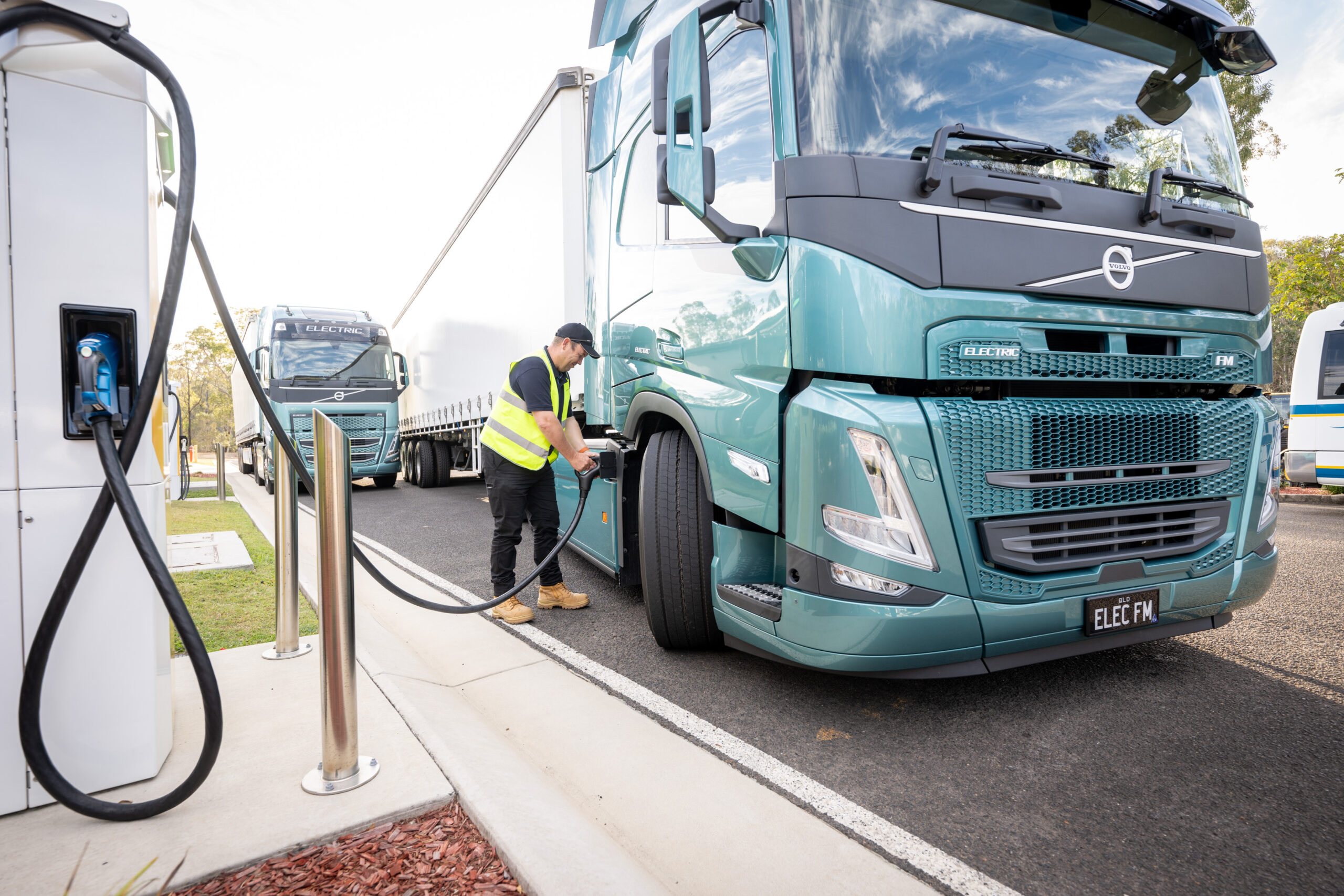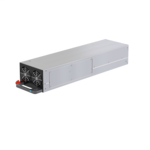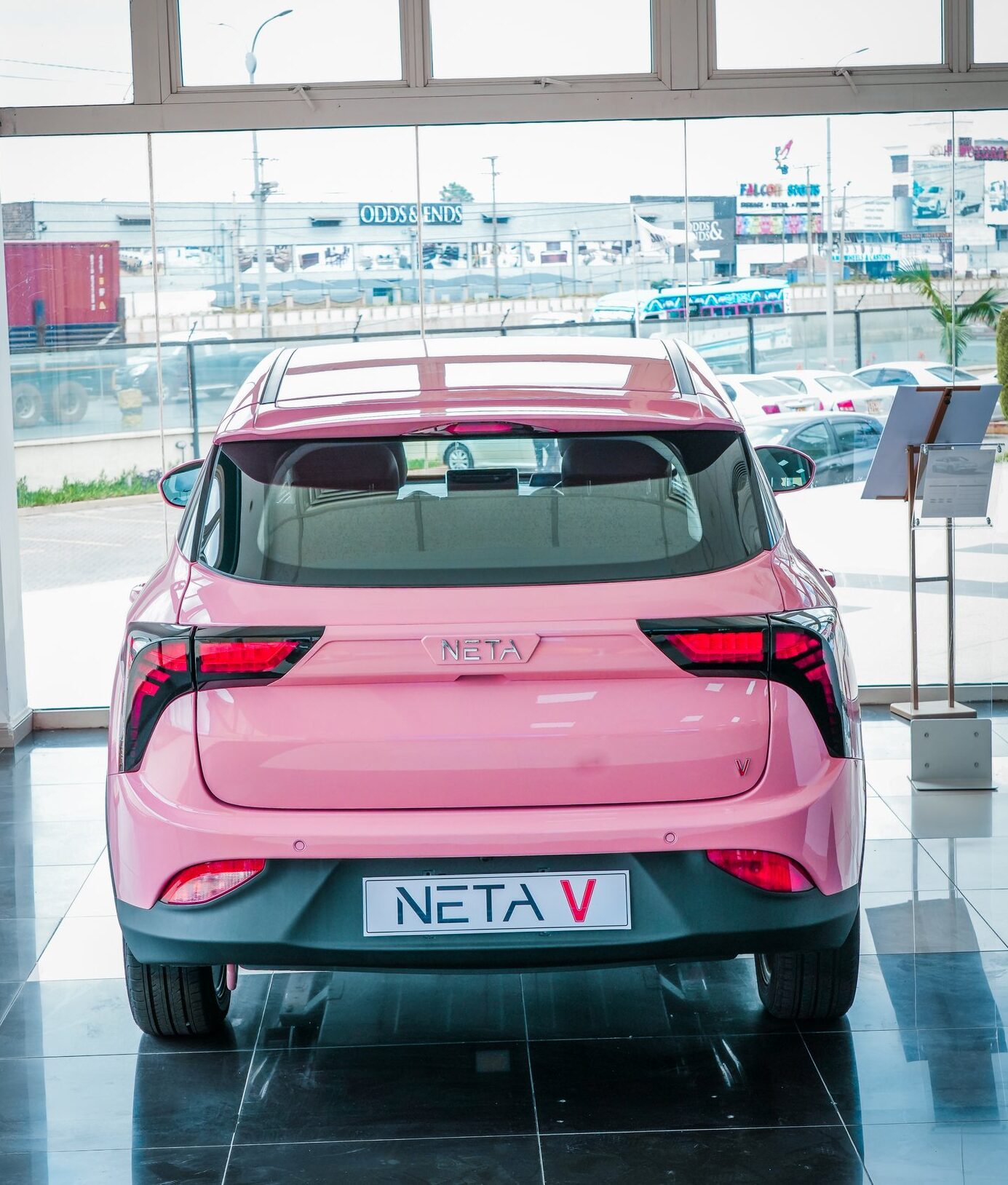
Sign up for daily news updates from CleanTechnica on email. Or follow us on Google News!
The Australian Renewable Energy Agency (ARENA) is actively supporting the transition of heavy-duty trucks from diesel to electric in Australia. Great news — after all, diesel starts with DIE. One hundred million Aussie dollars is on the table. That’s 62 million USD at today’s exchange rate.
I reached out to my contact at Volvo Australia for his take. He tells me that: “The ARENA grants have been awarded to companies that have also bought other brands of electric trucks along with Volvo, as well as for charging infrastructure and energy storage. To date we’ve delivered 84 Volvo electric trucks (prime mover and rigid) in Australia as well as 53 electric buses and 2 electric construction machines: one compact wheel loader and a 2.5 ton excavator. We have a strong order book for Electric trucks, buses and machines for delivery over the next 12 months.” What about domestic manufacturing? “The expected date for Volvo to begin manufacturing electric trucks is now 2027/28.” You can read more about Volvo’s Electric journey in Australia here.
Additional funding is being provided by ARENA to logistics companies Linfox (AU$20 million) and Toll (AU$9 million). That’s a total of AU$124 million for freight decarbonisation. Funds are provided under the Driving the Nation program. Guidelines can be found here. “The Driving the Nation Fund provides $500 million to invest in cheaper and cleaner transport. … targeting support for business fleets, new technologies for heavy and long-distance vehicles, public charging and hydrogen refuelling stations. It also aims to incentivise household smart chargers to boost the reliability of local electricity networks.”
ARENA CEO Darren Miller said the heavy transport sector has an important role to play in reducing the environmental impact of moving goods. “The heavy vehicle market has matured significantly over the past year in relation to battery electric vehicles, particularly vehicle availability and infrastructure. However, there are still significant hurdles, including upfront costs for operators, challenges with charging technology and infrastructure, as well as the lack of real-world data.”
“Transport accounts for about one-fifth of Australia’s CO2 emissions, with heavy vehicles a significant share of the transport emissions pool, emphasising why ARENA is focusing in this area of greatest impact. We know that customer demand across different modes of transport will continue to increase, with the transport sector expected to become Australia’s largest source of emissions by 2030,” Mr Miller said.
Linfox will deploy 26 battery electric trucks as well as charging infrastructure across regional and metropolitan distribution centres in Victoria, South Australia, and Queensland. These trials, partially funded by ARENA, will provide hard, real-world data over the next 3 years. The aim will be to validate “the performance of heavy EV trucks over longer distances, multiple duty cycles per day and at scale.”
Linfox Manager of Environmental Sustainability Ruby Diaz tells us that “85 per cent of Linfox’s carbon footprint comes from diesel fuel consumption, the most significant impact will be made in the decarbonisation of its transport operation.” Compared to a standard diesel Volvo FM, the inclusion of one Volvo FM Electric truck could result in savings of approximately 65 tonnes of CO2-e emissions per year using renewable energy.
“When you multiply the CO2-e emissions savings per year across the 26 brand-new electric prime movers, the environmental benefits are profound,” she said. “The Volvo electric prime movers mark a significant step up from the smaller-scale electric trucks. They will allow Linfox to service our customers across extended metropolitan locations, with larger loads and greater battery capacity.”
“Linfox customers will still receive safe, secure and on time deliveries. The electric prime movers offer the added benefit of reduced emissions which not only help the environment, but also help our customers meet their decarbonisation commitments.”
Linfox is committed to sharing knowledge and learnings gained about electric prime movers with partners. “Working together, we can focus on decarbonisation within the industry,” said Ruby. Infrastructure is being prepared to support the electric prime movers.
“Linfox has established design provisions for ready-to-plug charging infrastructure that will be available in our 5 Star Green Star GBCA rated distribution centres, as well as in any new construction projects. With future-ready smart sites, Linfox is leading the way with electric fleet support,” Ruby explained.

Toll expects that its project will also provide critical insights into the integration of electric trucks into Australia’s logistics industry. These insights should include: energy requirements for charging and operational considerations, such as route planning, payload, and duty cycle management. Toll is working with the Royal Melbourne Institute of Technology to analyze and report on the findings.
Toll will use the funds provided by ARENA to support “Project TruckVolt,” which will roll out 28 battery electric trucks and required infrastructure at 10 customer and toll-owned sites across Australia (containing 30 new charging ports). Toll will be contributing AU$67 million of its own money to the project. ARENA’s seed funding is expected to cover the incremental cost between acquiring and operating electric versus diesel vehicles. Toll is planning to add 10 Volvo FM electric prime movers and 18 Volvo FE electric rigids.
Toll’s key customers include Coca-Cola Europacific Partners, Woolworths, Bluescope, and Origin Energy. Rollout is expected next month. Toll projects that it will abate 1,810 tonnes of CO2 emissions per annum, making it one of the largest corporate investments in heavy vehicles and making Toll a leader in decarbonisation. Transport produces 20% of Australia’s greenhouse gas emissions.

“The funding from ARENA supports an important part of our broader strategy to optimise the environmental sustainability of our operations, and we’re delighted to be supporting our customers through a shared commitment to decarbonising their supply chains without needing to rely solely on carbon offsets. We’re excited at the prospect of expanding electrification across a larger portion of our fleet over time,” Alan Beacham, Toll Group Managing Director, said.
While emphasizing Toll’s commitment to electrification, Mr Beacham also points to a AU$200 million investment to upgrade the existing fossil fuel fleet to make it more efficient. Ten percent fewer emissions are expected from this upgrade.
“Fully transitioning to electric isn’t feasible overnight, but by combining electrification with these more efficient models, we’re doing everything we can to reduce our environmental impact and support our customers.”
ARENA will continue to provide funding for projects that “support high impact demonstrations and deployments of electric trucks, the deployment of heavy vehicle charging solutions, and other innovations to encourage the uptake of battery electric vehicles, regardless of size.” I’m looking forward to further news and developments. Although ARENA includes hydrogen in its definition of zero emission trucks, none are mentioned in the media reports I read for this article. On the highways, the future is bright and electric!
Chip in a few dollars a month to help support independent cleantech coverage that helps to accelerate the cleantech revolution!
Have a tip for CleanTechnica? Want to advertise? Want to suggest a guest for our CleanTech Talk podcast? Contact us here.
Sign up for our daily newsletter for 15 new cleantech stories a day. Or sign up for our weekly one if daily is too frequent.
CleanTechnica uses affiliate links. See our policy here.
CleanTechnica’s Comment Policy


